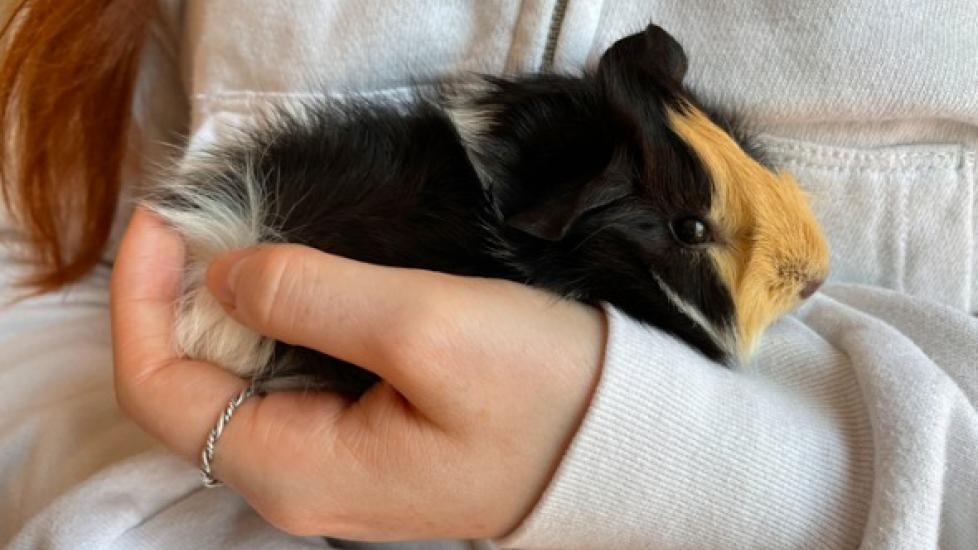Antibiotic Toxicity in Guinea Pigs
Allergic Effects Of Antibiotics on Guinea Pigs
Guinea pigs are very sensitive to the effects of antibiotics and often their administration can lead to toxic effects. One of the possible complications that follow the administration of antibiotics is an upset in the balance of the beneficial bacteria that normally live in the guinea pig's intestines, which in some cases can lead to more severe disease conditions than the original condition that was being treated. Prior underlying conditions, such as inadequate nutrition and vitamin C deficiency, can also make your guinea pig more likely to develop problems associated with antibiotics.
In general, you should avoid giving your guinea pig any antibiotics unless you have been specifically directed to do so by a veterinarian that is familiar with your guinea pig and its health history. If your guinea pig must take antibiotics, you will need to monitor its health carefully to avoid any complications from arising. Antibiotics are generally administered orally to guinea pigs rather than in an injection form.
Symptoms
Depending on the type of antibiotic, typicaly adverse reactions seen in guinea pigs include diarrhea, loss of appetite, dehydration, and/or a dangerous drop in body temperature. If the antibiotic treatment continues, the reaction may worsen and result in the guinea pig's death in less than a week. It is also important to note that even guinea pigs that do not show symptoms of antibiotic toxicity may die suddenly.
Causes
Many antibiotics, including penicillin, ampicillin, lincomycin, clindamycin, vancomycin, erythromycin, tylosin, tetracycline, and chlortetracycline can upset the balance of the beneficial bacteria that usually live in the guinea pig's intestines, creating an environment in which an opportunistic “bad” bacteria can take hold in the intestines. Two of the most common antibiotics that adversely affect guinea pigs are streptomycin and dihydrostreptomycin. Topical antibiotic ointments (i.e., those used on the skin) can also be toxic if the guinea pig licks and ingests the ointment.
Diagnosis
Your veterinarian can diagnose antibiotic toxicity in your pet by examining the guinea pig and testing its feces.
Treatment
There is no effective treatment for antibiotic toxicity in guinea pigs other than general support and discontinuing the antibiotics.
Living and Management
The guinea pig that is recovering from antibiotic toxicity should be monitored carefully for a relapse of any allergic symptoms. Consult your veterinarian about your guinea pig's dietary requirements during the recovery period, as they may need to be adjusted during this time. Follow the recommendations made by your veterinarian to help your pet guinea pig to recover quickly.
Prevention
In general, you should avoid giving your guinea pig any antibiotics unless you have been specifically directed to do so by a veterinarian that is familiar with your pet. If your guinea pig must take antibiotics, you will need be familiar with the signs of antibiotic toxicity, monitor its health carefully, and immediately consult your veterinarian if any abnormal symptoms arise.
Featured Image: iStockPhoto.com/mtreasure
